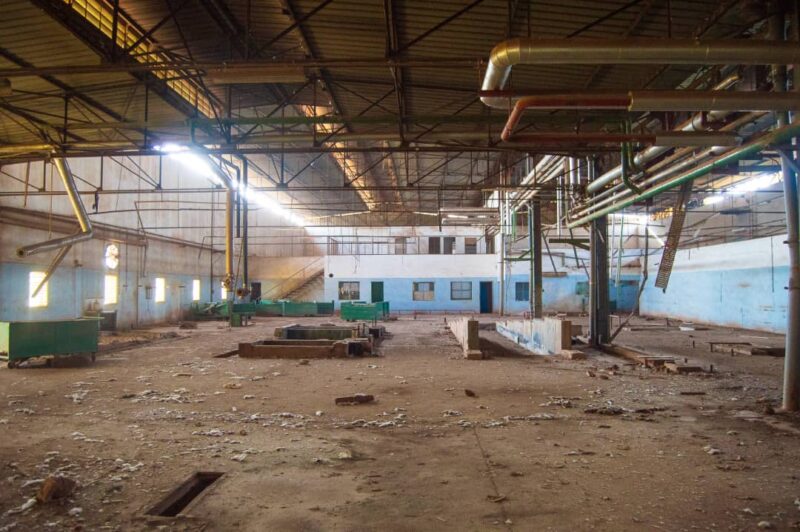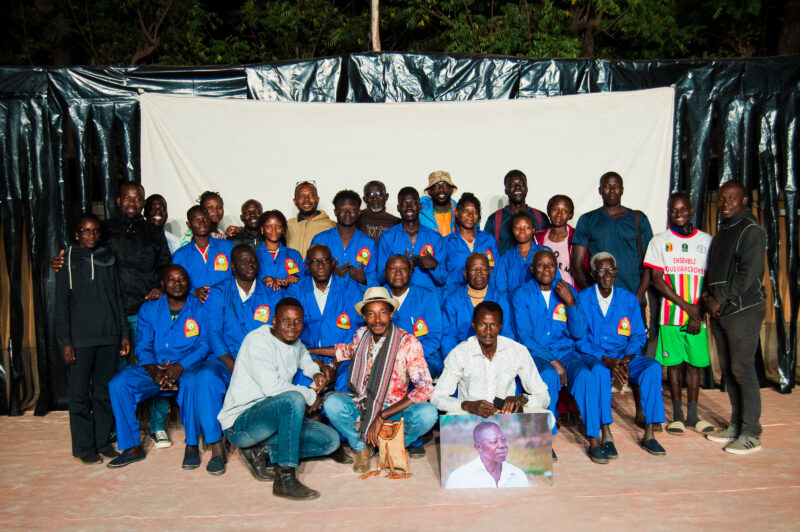Djesse – a participatory and intergenerational art project in Koudougou, Burkina Faso
December 2024
The multidisciplinary cultural project ‘Djéssé’, initiated by actor and director Mamadou Soma, deals with the disappearance of the Faso Fani textile factory, which closed its doors in Koudougou in 2001. This factory was once considered a symbol of Burkina Faso’s economic and cultural identity and provided many families in the region with a stable livelihood. Its closure as part of structural adjustment programmes and the accompanying privatisations left deep scars that are still visible today: lack of compensation for former employees, social distress and lasting psychological stress for subsequent generations.

It is in this context that Djéssé – which means ‘sewing thread’ or ‘weaving thread’ in Dioula – was conceived as an artistic, cultural and memorial space, aimed above all at giving a voice to former workers. They were invited to share their memories of everyday life at work and their craftsmanship with the theatre troupe. Based on these testimonies, the participants worked together to develop a performance and a play, which were presented to an interested audience during several evenings in Koudougou, accompanied by a photo exhibition.
The project facilitated enriching encounters between generations and familiarised young people with the history of the factory and its past importance for the region. For the older generation, the project was an opportunity to talk about the disappearance of the factory and its consequences.
Djéssé was born out of a creative and participatory approach in which the inhabitants became not only spectators but also active co-creators of the artistic process, with the aim of democratising theatrical practices and developing a theatrical language firmly rooted in the richness of local experiences.
Le projet culturel multidisciplinaire « Djéssé », initié par l’acteur et metteur en scène Mamadou Soma, traite de la disparition de l’usine textile Faso Fani, qui a fermé ses portes à Koudougou en 2001. Cette usine était autrefois considérée comme un symbole de l’identité économique et culturelle du Burkina Faso et offrait à de nombreuses familles de la région des moyens de subsistance stables. Sa fermeture dans le cadre des programmes d’ajustement structurel et des privatisations qui les ont accompagnés a laissé des traces profondes qui sont encore perceptibles aujourd’hui : absence d’indemnisation pour les anciens employés, détresse sociale et stress psychologique durable pour les générations suivantes.
C’est dans ce contexte que Djéssé – qui signifie « fil à coudre » ou « fil à tisser » en dioula – a été conçu comme un espace artistique, culturel et mémoriel, visant avant tout à donner la parole aux anciens ouvriers. Ceux-ci ont été invités à partager avec la troupe de théâtre leurs souvenirs du quotidien au travail et leur savoir-faire artisanal. À partir de ces témoignages, les participants ont élaboré ensemble une performance et une pièce de théâtre qui ont été présentées à un public intéressé lors de plusieurs soirées à Koudougou, accompagnées d’une exposition de photos.
Le projet a permis des rencontres enrichissantes entre les générations et a familiarisé les jeunes de la région avec l’histoire de l’usine et son importance passée pour la région. Pour la génération plus âgée, le projet a été l’occasion de parler de la disparition de l’usine et de ses conséquences.

Djéssé est né d’une approche créative et participative dans laquelle les habitants sont devenus non seulement des spectateurs, mais aussi des co-créateurs actifs du processus artistique, dans le but de démocratiser les pratiques théâtrales et de développer un langage scénique solidement ancré dans le trésor d’expériences locales.

